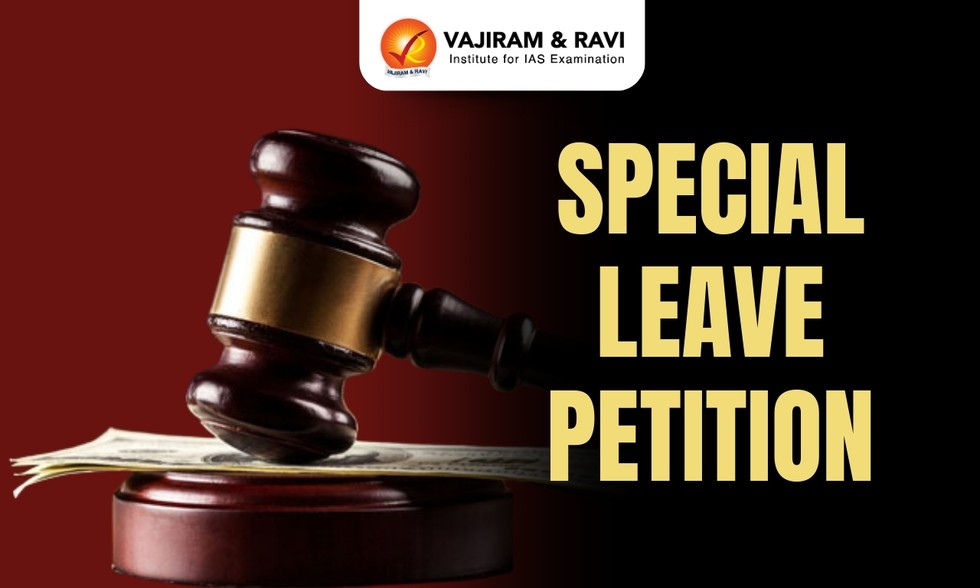About Special Leave Petition (SLP):
- A SLP is a request made to the Supreme Court of India seeking special permission to appeal against any judgment, order, or decree from any court or tribunal (except military tribunals), even when the law does not provide a statutory right of appeal.
- In other words, SLP is not a right—it's a privilege granted by the Supreme Court at its discretion.
- Article 136 states that the Supreme Court may, in its discretion, grant special leave to appeal from any judgment, decree, determination, or order from any court or tribunal in India.
- It can only be exercised when a substantial question of law or gross injustice has been committed.
- A judgement, decree, or order need not be final for an SLP. An interim or interlocutory order, decree, or judgement can also be challenged.
- It is a discretionary/optional power of the SC, and the court can refuse to grant the appeal at its discretion.
- The aggrieved party can’t affirm a special leave to offer under Article 136 as a right.
- SLP can be filed by:
- Any aggrieved party (individual or business)
- Government bodies
- Public sector undertakings
- NGOs or associations (in relevant cases)
- The key requirement is that the party must be aggrieved by the impugned judgment or order.
- An SLP can be filed for any civil or criminal matter, etc.
- SLP can be filed against judgments from:
- High Courts
- Tribunals (except those under armed forces)
- Quasi-judicial bodies
- Time limit to file SLP:
- It can be filed against any judgment of the High Court within 90 days from the date of judgment or
- It can be filed within 60 days against the order of the High Court refusing to grant the certificate of fitness for appeal to SC.
- Procedure for a SLP:
- A SLP must contain all the facts upon which the SC is to decide, which revolve around the grounds on which an SLP can be filed.
- The said petition needs to be duly signed by an Advocate-on-Record.
- The petitioner must include a statement within the SLP stating that no other petition has been filed in a High Court.
- Once the petition is filed, the SC will hear the aggrieved party and depending upon the merits of the case, will allow the opposite party to state their part in a counter affidavit.
- After the hearing, if the court deems the case fit for further hearing, it will allow the same; otherwise it will reject the appeal.
